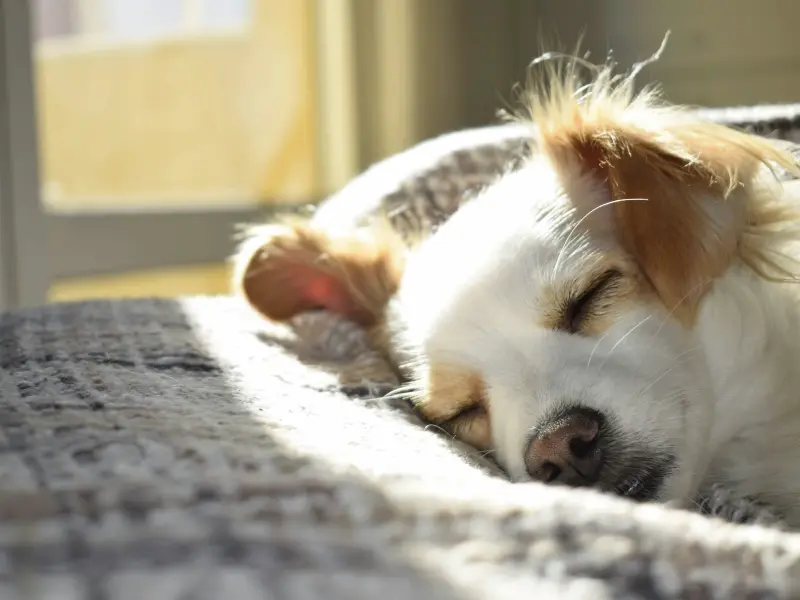Always remember that the relationship with a pet is always a give and take: you have to think about protecting his health, life and well-being, and he will give you serenity, joy and lots of companionship.
When you adopt an animal, you need to think first about how you will be able to take care of its health and well-being then.There are 4 small steps you can follow to always do your duty to your four-legged friend.
- General well-being
The general well-being of the animal is fundamental: a new ecosystem must be created that includes not only the well-being of the person but also the well-being of the animal. Dogs and cats will live as a function of the owner, so it must be the owner who gives his or her attention as properly as possible to his or her pet, so that he or she does not miss anything.
- Healthy environment
The new environment represents a new beginning for the animal, so efforts should be made to create the most suitable place possible. A key feature must be the separation of the feeding place from everything else. The animal must know that only in a particular place will it be given the bowl with food and left the water. This division makes it possible to properly educate the dog and cat in healthy and proper feeding. - Health
Health is as essential for animals as it is for humans. We must not forget that the animal also needs periodic care, regular vet checkups, and, most importantly, every year it must undergo the usual vaccinations for its health and that of its owner. The vet appointment should never be forgotten. Visits to the veterinarian are essential to monitor the cat’s overall health and prevent or treat any illnesses in a timely manner. Regular veterinary visits are especially important in the following cases:
- Vaccinations: Cats must be vaccinated against certain infectious diseases, such as calicivirus, feline panleukopenia (parvovirosis) and feline leukemia. Basic vaccinations are usually given in the first few months of life, followed by annual booster shots. For dogs, filaria is essential, before summer, to prevent any problems for the animal and its human.
- Parasite control: Keep an eye out for external (fleas, ticks, mites) and internal (intestinal worms) parasites. Your veterinarian can recommend specific preventive treatments, such as spot-on or anti-parasite collars. Prevention is especially important for cats that live outdoors or may come in contact with other infected animals.
- Sterilization: Spaying (castration for males, ovariohysterectomy for females) is essential not only to prevent feline overpopulation, but also to reduce the risk of certain diseases, such as cancers of the reproductive organs and uterine infections in females. In addition, it can reduce undesirable behaviors, such as territory marking in males.
- Regular checkups: Even if the animal appears healthy, it is advisable to have annual checkups to monitor its overall health. These checks may include blood tests, urine tests and inspections for possible signs of disease (such as kidney disease, diabetes or heart problems).
- Choosing the right kibble
Every dog and cat has different characteristics due to age, breed type, etc., so the right kibble for its needs should be chosen. A puppy needs a different caloric intake than an adult animal, so a kibble with the right characteristics should be chosen. A spayed cat needs a different feed than an unspayed cat. You need to choose the right food for your four-legged friend’s characteristics. Feeding is one of the most important aspects of your pet’s health. A balanced diet suited to its nutritional needs is essential to prevent many diseases. Quality food: Make sure your pet eats high-quality food, preferably a food that contains meat as the main ingredient. Choose a diet that meets his specific needs, based on his age, health condition and level of physical activity. Portions and weight control: Cats tend to become obese easily, especially if they live indoors and are not very active. Monitor portions to avoid overeating and check your cat’s weight regularly. If you notice a significant weight change, consult your veterinarian. - Hygiene and personal care
Every pet needs some daily and weekly hygiene, which depends on the species and breed.
- Dogs and cats: They need to be brushed regularly, especially if they have long hair. This helps prevent knots, reduce hair loss and keep their skin healthy. Also, cats are very clean and tend to bathe themselves, but if necessary, you can help them with an occasional bath.
- Oral hygiene: Dental care is essential to prevent dental diseases such as gingivitis and periodontitis. If possible, brush your pet’s teeth with a pet-specific toothbrush and toothpaste. If you can’t brush them, there are also dental foods and snacks that help prevent plaque and tartar.
- Nail clipping: Dogs and cats should have their nails clipped periodically, especially if they live indoors and do not wear out from walking on hard surfaces. Be sure to use an appropriate nail clipper and be careful not to cut too close to the pink part (called the “pulp”).
- Bathing and cleaning: In addition to grooming, pets should be kept clean in other areas of the body. For example, clean ears regularly and check for parasites, such as fleas or ticks. If your pet needs a bath, use shampoos specifically for pets and not products for humans, which may irritate their skin.
Your four-legged friend lives with you, in the same environment as you, you need to create a new consonant world for him where you would also like to live, and he will always be there ready to offer you joy and companionship. every pet needs affection and interaction with its owner. Set aside time each day to cuddle, play and socialize with your pet. Animals are sensitive beings and develop strong emotional bonds with their human companions. A loving and caring environment will contribute to their emotional well-being and happiness.





